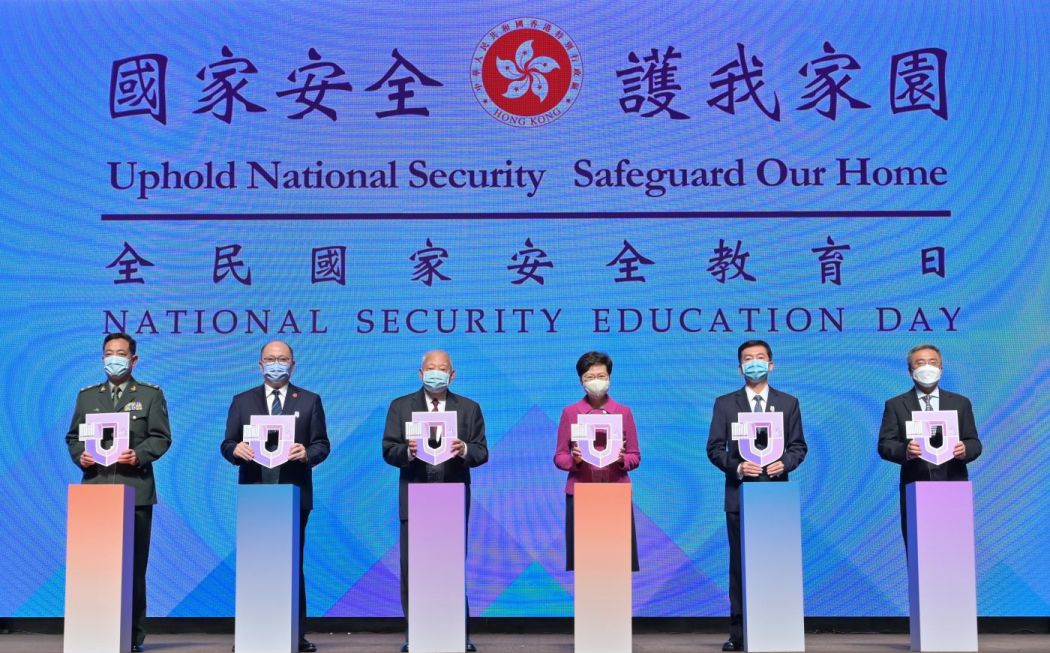The Hong Kong government has criticised a Reporters Without Borders report which warned that the national security law poses a “grave threat” to journalists in the city, saying nobody is above the law.
“We are appalled by remarks made by Reporters Without Borders that seemed to suggest that people with a particular profession should be immune to legal sanctions,” a government spokesperson said on Wednesday, according to RTHK.

“Criminals who break the law must face justice. Arrest and prosecution actions were based on facts and evidence and strictly according to the laws in force, regardless of the profession or stance of the suspects,” it said.
The comment comes after the international press freedom watchdog described the Beijing-imposed legislation as particularly hazardous for reporters.
“The national security law that the Chinese government adopted in June 2020, allowing it to intervene directly in Hong Kong in order to arbitrarily punish what it regards as ‘crimes against the state,’ is especially dangerous for journalists,” said RSF’s report released Tuesday.

The report cited the arrest and charges under the national security law against pro-democracy Apple Daily founder Jimmy Lai, and increasing government pressure on public broadcaster RTHK.
“RTHK is being subjected to a full-blown intimidation campaign by the government with the aim of restricting its editorial autonomy,” it said.
RTHK has introduced a screening mechanism for its content and has axed at least nine episodes across three programmes since a former bureaucrat with no journalistic experience took the helm in March.
Hong Kong’s ranking remained at 80 out of 180 countries and territories in RSF’s 2021 Press Freedom Index. The watchdog’s East Asia Bureau Chief Cedric Alviani told HKFP on Tuesday that he believed the lack of change in the city’s ranking was “the calm before the storm,” saying he feared its journalists faced mounting risks.
Fake news law
Concerns over the state of press freedom in Hong Kong come amid vows by authorities in recent months to take action against “fake news.”
Police Commissioner Chris Tang told TVB programme Straight Talk on Tuesday a law against fake news would help protect national security. “I think it’s good to have such a law… for every law that can assist the national security and assist us to make Hong Kong safer.”

He added that he believed it would be good to have a separate law to clearly define fake news.
Tang has vowed to investigate all media outlets deemed to have endangered national security by publishing what is seen as fake news.
Chief Executive Carrie Lam has also vowed to legislate against disinformation, accusing some media outlets of “vilifying and distorting” her administration’s statements.
Straight Talk host and veteran journalist Michael Chugani on Wednesday announced his departure from the show and from other media posts.
Support HKFP | Policies & Ethics | Error/typo? | Contact Us | Newsletter | Transparency & Annual Report | Apps
Help safeguard press freedom & keep HKFP free for all readers by supporting our team
























